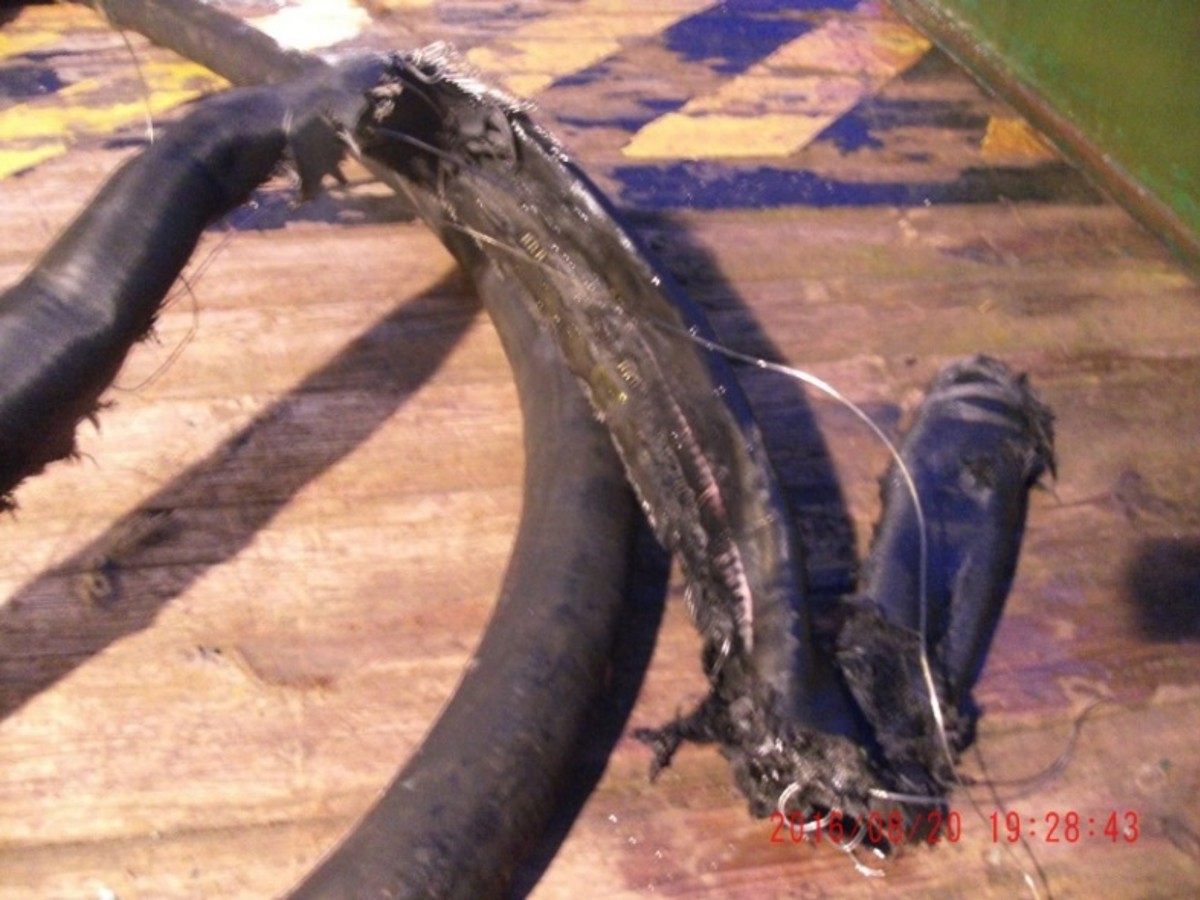Near miss: Hose parted
- Safety Flash
- Published on 9 November 2016
- Generated on 13 February 2026
- IMCA SF 30/16
- 1 minute read
Jump to:
A Member has reported an incident in which a hose parted. The incident occurred whilst an anchor handling tug (AHT) was delivering deck cargo and fuel oil to a drill ship.
What happened?
Crew noticed that the hose was fouled below the water line of the AHT. Pumping was immediately stopped and the hose was blown down. The hose was then disconnected from the vessel manifold. An attempt was made using the drill ship crane to pick up the hose but this was unsuccessful. The AHT tried to clear the hose by going closer to the drill ship. Attempts were made to use both the AHT vessel crane and the drill ship crane to free the hose, and while this was happening, the hose parted. No oil leak was observed.

Our member noted the following:
- Root cause: Floatation collars were missing on the hose.
- The parted hose could have fouled the ship’s propeller resulting in a dangerous situation.
- Lessons learnt/preventive action:
- the length and condition of the hose should be checked before work starts
- where necessary, floatation collars should be used on hoses
- willingness to stop the job needs reiterating.
Related Safety Flashes
-
IMCA SF 01/15
16 January 2015
-
IMCA SF 04/14
4 April 2014
-
IMCA SF 13/13
4 September 2013
IMCA Safety Flashes summarise key safety matters and incidents, allowing lessons to be more easily learnt for the benefit of the entire offshore industry.
The effectiveness of the IMCA Safety Flash system depends on the industry sharing information and so avoiding repeat incidents. Incidents are classified according to IOGP's Life Saving Rules.
All information is anonymised or sanitised, as appropriate, and warnings for graphic content included where possible.
IMCA makes every effort to ensure both the accuracy and reliability of the information shared, but is not be liable for any guidance and/or recommendation and/or statement herein contained.
The information contained in this document does not fulfil or replace any individual's or Member's legal, regulatory or other duties or obligations in respect of their operations. Individuals and Members remain solely responsible for the safe, lawful and proper conduct of their operations.
Share your safety incidents with IMCA online. Sign-up to receive Safety Flashes straight to your email.